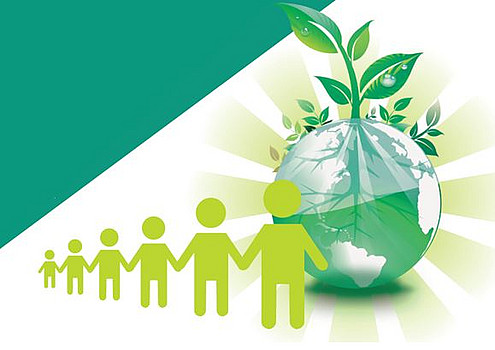International Conference 2019
"Responsibility for the Future - New Philosophical Foundations on Peace and Justice".
November 7-10, 2019, in Graz/Austria.
"Humanity is in a crisis - and there is no other way out of this crisis than solidarity between people." Zygmunt Baumann
The topicality of the subject is undisputed in view of the global political situation. Every day we are confronted with messages of horror through the media, yet in everyday life everything seems to go on as usual.
Is it quite normal that shocking events turn into the boring routine of normality? Are only children particularly prone to concern themselves with human rights issues, climate change, peace and justice? What does philosophy give us to take a differentiated position on current events, when in fact we are usually at a loss for words?
We are all aware that we have to face great challenges, since we are dealing with rapid developments - through the well-known processes of climate change, globalization, digitalization, artificial intelligence. This affects the different forms of society and state and, in particular, the different societies. For example, climate change is a global problem that could significantly and irreversibly change life on the planet. The consequences of climate change, the unequal distribution of damages make it clear that the future debate about global justice will be an important issue. Time and again, the causes of climate injustice in the world are pointed out: Economic growth without borders, inequality between rich and poor, warlike conflicts, racism, insecurity, and the impact of climate change on the world's poor in particular. In the future, climate change will increasingly affect not only ecosystems but also the stability and peace of states and societies. Is climate change becoming a threat to peace?
Raising awareness for peace and justice is therefore becoming more relevant than ever. This also relates to the rapidly changing relationships between individuals and society, especially because increasing digitalization, artificial intelligence (AI), and robotics are bringing changes that affect both state, non-state, and
individual dimensions. The race for future technologies has begun - the development towards Society 4.0 - towards the complete networking of man and machine. Are we surrendering our self-image as free subjects to the most concise form of machine intelligence, the algorithm? Will self-learning systems plan more sensibly in the future than fallible humans? What enormous opportunities and what great risks does this development hold? How do we want to deal with the possibilities of artificial intelligence in our society? Who bears the responsibility? The congress aims to gradually work out the connections between cognition, perception and reality in all their complexity and dynamics in order to enable better understanding and to develop arguments for peace and justice that are as qualitative and quantitative as possible. While governments around the world negotiate the future of our planet, one important stakeholder group is often missing - children and youth. Yet the responsibility to address the problems that arise falls on adolescents in different countries, because they are the ones who will ultimately have to implement and achieve the agreements and goals made at the global level in the future. For this reason, and in the sense of intergenerational justice, it is necessary to meet simultaneously, more openly and in a more differentiated way ("Dialogue of the Generations"), because it is becoming increasingly clear that sensitization and reflection call for current priority processes or movements ("Fridays for Futur", "Me too") to achieve an epistemic revaluation also in the special case of children. This year's congress is again planned as an inter/transcultural forum in order to enable philosophical confrontations with contemporary phenomena, as well as to draw a bow to other scientific disciplines. An important goal of this event is to initiate an exchange of different approaches and thus to make explicit further knowledge bases for educational concepts as well as for educational policy initiatives.
initiatives.
The topics of the congress will focus on the following areas:
- Relations between reality and virtuality
- Problems of nationalisms
- Power and language
- News and Fake News
- Community of Inquiry
- Pluralistic Democracy and Human Rights
- Freedom and self-determination
- Justice in a globalized world
- Philosophy and Digitalization
- Responsibility for the environment and living beings
- Philosophy and scientific-technical progress
- Connections between communication and life forms
- Philosophical perspectives and educational processes

